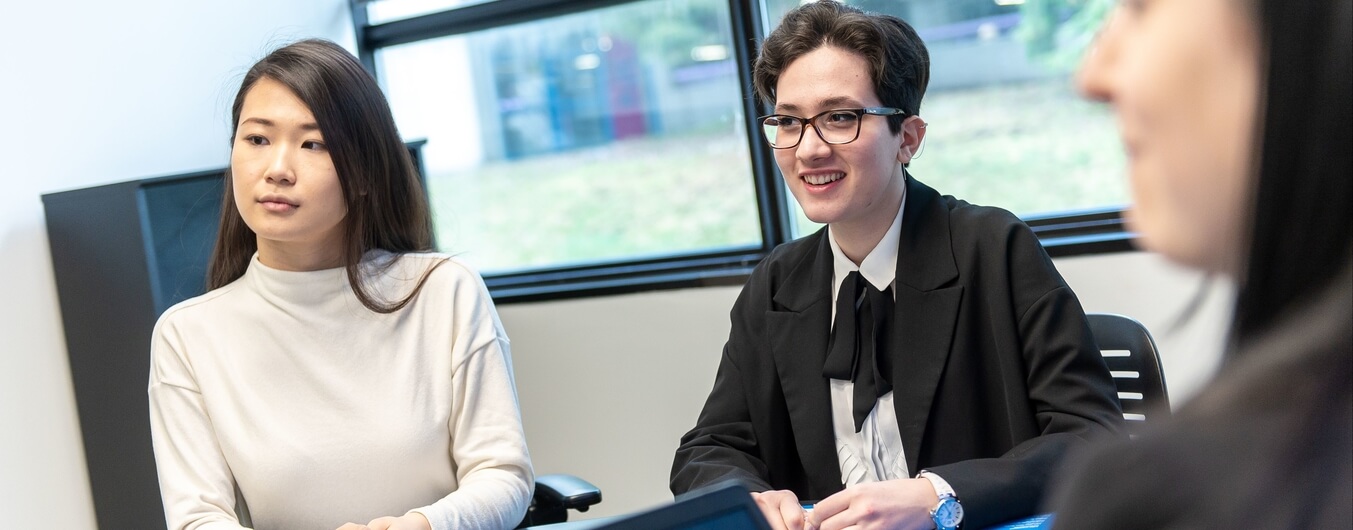Experiment with Your Career
April 24, 2025

April 24, 2025

Whether you're testing out your latest hypothesis in the lab or exploring ideas for your future, the process can be surprisingly similar.
The biggest scientific discoveries don’t usually happen over night - the same is true in life and career exploration. It usually takes a few (or sometimes many) attempts at identifying and exploring your curiosities, getting experience, and connecting with people. Take these steps to clarify your strengths, values and skills, and help you move forward in a way that’s right for you.
The whole point of experimenting is to discover new things, which means making mistakes that lead to exciting learning opportunities along the way. It’s important to think about both your positive and challenging experiences and to reflect back on what you can learn from them. From there, consider how you can apply those lessons going forward.
So let’s get started on your next experiment: your career!
The things that you’ve done, places you’ve gone, your family, friends and community, as well as your interests, hobbies and beliefs all matter. Take stock of your skills, interests, abilities and the things that are important to you. Observe how these shape and inform your identity and the decisions you make about life and career.
As a Science student in a lab, you immerse yourself in curiosity. Use this “career experiment” as an opportunity to get curious about yourself and make observations to help you better identify your next steps.
There are many things you can do with your degree – there isn’t just one option or right path! Clarifying the questions you have about your life and career will help you move forward and take action in your career experimentation. Whether you’re ready to jump right into your job search or are still exploring your academic and personal interests, there’s no right or wrong place to begin.
Once you’ve clarified your initial question, move onto developing a hypothesis for how to take action on it and work through the remaining stages outlined in this blog post. You might not get all of the answers you’re seeking at once, but this is great place to start.
If you have multiple questions, keep track of them and revisit your list as you make progress. Just take them one at a time.
As you know, a hypothesis is an educated guess. It doesn’t mean you already know the answer to your problem. It means that based on previous observations you’ve made, you are trying to predict an answer or solution. And the same applies to exploring and experimenting with your career.
As you move back and forth throughout your career experiment and try out different ideas, know that this is not intended to be a linear process from A to B to C. Every step of the way, remember to check in with yourself and reflect on what you’ve learned about yourself or from the experience in general. Use this feedback to guide you in either continuing to explore your way forward or to revisit any of the earlier stages and adjust your strategies.
As you build your career, approach it like a researcher or scientist in the lab. Roll up your sleeves, get curious, test out your hypothesis and take action. The purpose is to try something, learn from it and consider how you can apply what you’ve learned.
Career and life exploration are complex. While some opportunities and learning may come to us easily, stress or a feeling of being stuck can also be inherent in the process. Whatever comes up for you, there are strategies that can help you deal with these.
If you’re still struggling to get clarity, try reframing any setbacks or feelings of uncertainty as simply being a form of feedback telling you that it might be time to try out some new strategies. Remember, the focus of experimentation is on progress, growth, and learning, not on perfection.
As Science students, you are keenly aware of the ups and downs of experimentation and that sometimes the most important learning happens when things don’t go perfectly. Take some time to reflect on what you’ve tried in order to give you a sense of clarity about what you’ve learned.
As you know, experimentation starts out to prove a hypothesis; in the field of science or in your personal life, experimentation can sometimes lead you to establishing a new hypothesis. This isn't a signal to stop experimenting - it is a signal that there is always more to learn. Keep exploring what you can do with your Science degree.
Your career journey is an ongoing process and you’ll likely start new “career experiments” throughout your life. Recognize yourself for the important effort you invest at every stage and be proud of the learning and growth you achieve along the way.
Written by a Career Strategist at the UBC Career Centre who is an expert in career development. Connect with additional resources and workshops online.
We honour xwməθkwəy̓ əm (Musqueam) on whose ancestral, unceded territory UBC Vancouver is situated. UBC Science is committed to building meaningful relationships with Indigenous peoples so we can advance Reconciliation and ensure traditional ways of knowing enrich our teaching and research.
Learn more: Musqueam First Nation